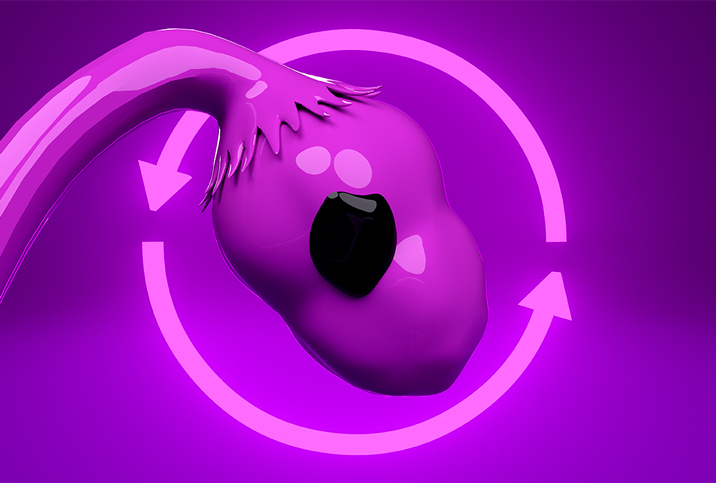The Impact of Breast Cancer Treatment on Fertility

Breast cancer is a challenging diagnosis faced by 1 in 8 American women. Understanding the link between breast cancer treatment and fertility can help you minimize risk factors and create options for pregnancy in your post-cancer life.
Fertility, or the ability of a woman to successfully get pregnant and carry a baby to term, depends on many factors. Anatomical, physiological and psychological functioning can all play a role. Damage to reproductive organs, hormone level changes or the inability to engage in sex can all result in infertility. Psychological stressors such as anxiety and depression are major contributors.
Cancer and cancer treatments can interfere with the natural fertility process, including chemotherapy and hormone therapies.
Breast cancer treatments & fertility
The method of breast cancer treatment is based on what type of cancer it is and the specific characteristics of the cancer cells, such as receptor status, and its size and whether it has metastasized. Women may have a cancer that is in situ (not spread) but still be advised to take a medication to reduce estrogen levels for several years afterward. These medications are teratogenic—they can cause malformations to an embryo—so women need to delay childbearing until they are off of them. Women who want to have a pregnancy should discuss with their oncologist the timing of all of this.
Talk to your doctor about birth control methods during treatment so pregnancy does not become an important issue.
Chemotherapy for breast cancer can be hormone-mediated or cytotoxic (directly attacks the cells). Cytotoxic chemotherapy targets cells that divide rapidly, which is a feature of most cancer. Unfortunately, the chemo medications can also attack normal cells that divide more quickly such as those in skin, hair and nails; the mucous membranes like the mouth and the digestive tract; and cells in the ovaries. Cell damage to the ovaries can affect hormone levels, ovulation, make periods irregular and even induce an early menopause.
Certain chemotherapy medications for breast cancer are more likely to cause infertility, especially if taken at higher doses or for longer duration, but the effect of chemotherapy on an individual's fertility depends on many factors, such as the type and duration of therapy, the woman's age, and her ovarian reserve (estimate of eggs). Women older than 35 are more likely to experience infertility after chemotherapy than younger women. Additionally, some hormone therapies to treat breast cancer can cause infertility by blocking or suppressing hormones, while others, like tamoxifen, can increase the risk for birth defects. This is generally while the drugs are being taken, due to their teratogenic effects, and pregnancy can be pursued once women are well off of these medications. The effects of hormone therapies can be temporary or permanent.
Keep in mind that pregnancy during chemotherapy is not safe, as the chemo drugs can cause significant damage to the fetus. Talk to your doctor about birth control methods during treatment so pregnancy does not become an important issue. Also, getting pregnant too soon after chemo can increase the risk of miscarriage and birth defects, so make sure you discuss a safe time line with your physician.
Despite all of those challenges, many women are still able to have a successful pregnancy after breast cancer, either unassisted or with the many reproductive technologies now available. Studies indicate that having a pregnancy after breast cancer treatment does not increase the risk of cancer recurrence.
Minimizing the impact
Discuss your fertility plans and any possible treatment impacts on fertility with your doctor as part of your cancer treatment plan. Your oncologist will be the best person to help you understand the risks and benefits of all of your treatment options and help you make the informed decision that best fits your goals. If you feel like your fertility concerns are being brushed aside, speak up. They may not understand your goals or you may have missed some critical information regarding your condition. If you still don’t feel heard then that may be time to change physicians.
An REI (reproductive endocrinology and infertility) physician is a good person to have on your team and can discuss options for preserving fertility such as cryopreservation (freezing) of eggs or embryos. Retrieving eggs for freezing does involve hormone treatment to stimulate the ovaries but, reassuringly, a 2021 study in JAMA showed no evidence of increased risk of future cancers or recurrence in women who underwent these procedures. In vitro fertilization (IVF), intrauterine insemination (IUI) and other forms of assisted reproductive technology (ART) may be options.
Coping with infertility
Sometimes, despite your best efforts, you are not able to successfully carry a pregnancy to term. Know that you are not alone; in the U.S. roughly 10 percent of women have known the pain of infertility. It does not have to define you or your family.
Experiencing breast cancer is a significant life challenge, and your body is unlikely to come through it unchanged. Reach out to family, friends and loved ones for support, and be proud of yourself for meeting the challenge head-on. Do your fertility research, consult your doctors, love yourself and stay positive.


















